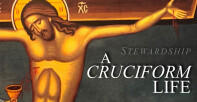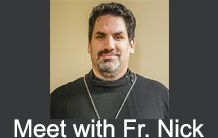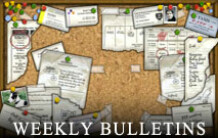The Twisted Impulse of the Flesh: Self-Preservation
The Darwinian delusion would have us believe that we are nothing more than mammals. As the instinct for survival is given to animals, so also it is given to us. We are creatures. We are mortal. Dust we are and to dust we shall return, after all. Our fleshly appetites run deeply—the desire for food and drink, the drive to reproduce in order to live on after death in our descendants.
Ironically, it is the fear of death that entered through Adam & Eve’s act of eating which enslaves us to our base appetites. “Eat, drink, and be merry, for tomorrow we die.” We need to eat to stay alive. We need to drink to stay alive. We need to reproduce to continue our species. This thought shows an appetite that is twisted away from God and turned in on ourselves. It sees neither the true nature of death nor of life.
We are not animals. Food and drink cannot keep us alive for much over a century. Reproduction will not ultimately ensure the survival of our species.
Jesus was hungry after 40 days of fasting in the Wilderness. The tempter tested Him the same way Eve was tested. Eve’s appetite fixed its gaze at the fruit and not the Giver of true sustenance. She desired physical food over doing the will of God. But the eyes of Christ were always toward His Father’s will and His appetite was always directed by the Spirit of God. His answer to Satan is the corrective for our twisted appetites:
“Man does not live on bread alone, but on every matter which comes from the mouth of God.”
As the Lord teaches in Deuteronomy 8, hunger exists to humble us, to put us to the test to see if our hearts hunger and thirst for God’s righteousness or whether our stomachs just want food. Hunger tests how we view our lives—whether we are mere animals who exist for daily survival or whether we are sons of God, living and reigning with Him over all creation.
As Jesus was sitting by a well in Samaria in the life-sapping heat of the day, His disciples asked Him if He had eaten anything that day. He replied, “My food is that I might do the will of the One who sent me and bring His work to its end-goal.”
That end goal was the cross. That will of His Father was that He might taste death for everyone. He shared our flesh and blood (including our fleshly appetites) so that through death He might destroy the one who has the power of death, that is, the devil, and free those who through fear of death were subject to slavery to sin all their lives.
The end goal of our life is the cross as well. We are called to self-sacrifice—to lose our lives that we might gain eternal life. The purpose of our earthly life is to be disciplined by our heavenly Father, to be subject to Him that we might truly live. And though this discipline is unpleasant, if we allow ourselves to be trained by it, we get to share in His holiness and that righteousness produces peaceful fruit. We are then no longer engaged in a war for survival, but instead an ongoing campaign of all-consuming love. Peace replaces fear. Righteousness replaces sin. Life replaces death.








Comments
Login/Register to leave a comment